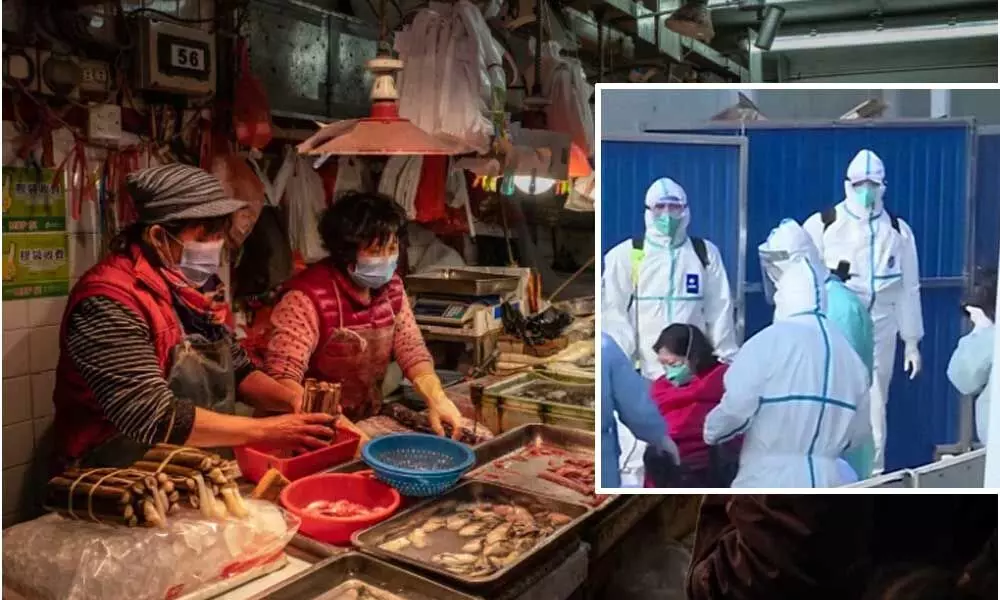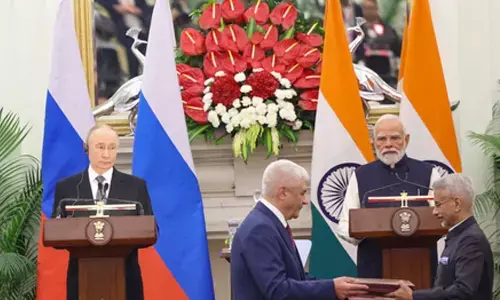World Health Day: Govt's across the world urges to put a ban on wildlife trade
 World Health Day (For representational purpose)
World Health Day (For representational purpose)World Health Day: Humane Society International says wildlife markets worldwide are a petri dish for the next global pandemic
World Health Day: The Union Government of India today has been sent an urgent letter and science-based white paper from Humane Society International/India calling for immediate action to ban wildlife trade, transport and consumption - particularly mammals and birds which are known to contract coronaviruses - in order to address the threat they pose to public health in addition to animal welfare and species conservation.
The urgent plea to Prime Minister Narendra Modi and the Minister of Environment, Forests and Climate Change, Prakash Javadekar, is part of a coordinated action by HSI to governments across the globe in the wake of the coronavirus pandemic.
Although the exact origins of the current coronavirus are still unknown, it likely originated in a market in Wuhan, China selling and slaughtering live wild animals on site. Multiple infectious disease outbreaks have been tied to the wildlife trade including SARS in 2003 which is believed to have been passed to humans by civets sold for meat. An estimated 75% of emerging infectious diseases are zoonotic (spread from non-human animals to humans).
While the Indian Wildlife Protection Act 1972, prohibits hunting and trade in endemic species of wildlife, there are several live animal markets that horde exotic species alongside domestic animals under unhygienic and stressful conditions which have the potential for transfer of pathogens from one species to another. Crawford market in Mumbai, Russell Market in Bangalore, Murgi Chowk in Hyderabad and Mir Shikar Toli in Bihar are just a few examples of this. HSI/India is urging the government to ban all such large live animal markets with the sale of exotic wildlife, regulate the import and export of exotic animals by bringing in the much needed CITES legislation and enforce strict adherence to pet shop rules (2018) for those independent stores that sell live animals.
Teresa Telecky, vice president of wildlife at Humane Society International, said, "The current COVID-19 pandemic has illustrated just how deadly the wildlife trade can be, not just for the wild animals involved, but also for people throughout the world. COVID-19 has killed thousands of people and will likely have lasting negative impacts on local and global economies. It is a tipping point that governments globally must not ignore. Wildlife markets worldwide are a petri dish for the next global pandemic, so governments across the globe must do everything they can to prevent this from happening again, and that means banning this dangerous trade and helping those traders involved find alternative livelihoods as quickly as possible."
Sumanth Bindumadhav, campaign manager at Humane Society International/India, said "Currently, animal markets across the country house exotic wildlife in large numbers. Very often, these markets serve as a front for illegal wildlife trade in endemic species. Nowhere was this more evident than Sonepur Mela in Bihar which, thanks to government efforts, has not sold wildlife for the past three years. Regulation around the import and breeding of exotic wild species are lax, however, which helps create a smokescreen for a thriving illegal trade in threatened and endangered species. A ban on large live animal markets and regulation of pet stores across the country will help to address this ticking time-bomb. We urge the government to take urgent action to ensure India does not become the site of the next pandemic."
To facilitate the global ban, HSI also urges governments to actively transition citizens who rely economically on the wildlife trade into alternative livelihoods and to provide more resources for educating the public on the health risks of the wildlife trade.
China introduced a temporary ban on the sale of wild animals for food in early March but has yet to codify it into law, and wild animals used for other purposes such as traditional medicine are notably excluded from the prohibition, as are some "farmed" wildlife. This month the Chinese city of Shenzhen took an enlightened step further by permanently banning all trade and consumption of wild animals, plus dogs and cats. However, globally, and especially in other parts of Asia, thousands of similar markets of the type linked to both SARS and COVID-19, still exist and pose a continued threat to human health. Typically in such markets, a variety of wild species are crowded together in unhygienic and stressful conditions, and frequently slaughtered on the premises or offered live as exotic pets, providing ideal circumstances for the spread of zoonoses.
"Temporary bans on the wildlife trade are a good start but in order to fully address potential future outbreaks, it is imperative that countries permanently ban the wildlife trade and include wildlife used for any purpose including for medicine, fur, pets, and others. With the stakes so high for global human health and wildlife protection, there is no place for complacency or half measures," Telecky explains.
Global concern
*** Wild bird markets in Vietnam have been implicated in the spread of the highly pathogenic Avian Influenza (HPAI H5N1) virus;
*** Past surveys of wildlife markets in Lao PDR have identified mammals on sale known to be capable of hosting 36 zoonotic pathogens;
*** A recent literature analysis using TRAFFIC survey data from wild meat restaurants, roadside stalls, and markets in Malaysia, identified 51 zoonotic pathogens that could be hosted by wild species found on sale;
HSI also warns that wildlife bans must be comprehensive and apply to the sale and consumption of all wild mammal and bird species, or risk missing the potential intermediate host for the next epidemic. Bats have been identified as the natural host or reservoir source for a wide range of viruses, including coronaviruses, and are sold as delicacies in East and Southeast Asia, the Pacific Islands, and Sub-Saharan Africa. However, coronaviruses from bats use an intermediate species in order to "weaponize" and pass the virus to humans, so partial bans won't fix the problem.
Also on World Health Day, HSI joins with more than 200 organizations in signing an open letter to the World Health Organisation calling for it to exclude the use of wildlife in Traditional Chinese Medicine.




















